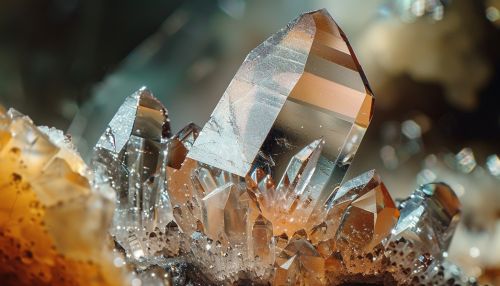Crystallization
Introduction
Crystallization is a process by which a chemical substance is transformed from a disordered, amorphous or liquid state into a highly ordered, solid state where the atoms or molecules are arranged in a crystal lattice structure. This process is fundamental to numerous fields of study, including chemistry, physics, geology, and materials science.
Process of Crystallization
Crystallization can occur through various mechanisms such as nucleation, growth, Ostwald ripening, and aggregation. Nucleation is the initial step in crystallization, where a small number of atoms, ions, or molecules come together to form a stable, tiny crystal that acts as a seed for further growth. This is followed by the growth phase, where additional atoms, ions, or molecules are added to the growing crystal.


Types of Crystallization
There are several types of crystallization, including evaporative crystallization, cooling crystallization, reactive crystallization, and antisolvent crystallization. Each type involves a different mechanism and is used in different applications.
Applications of Crystallization
Crystallization has a wide range of applications in various fields. In the chemical industry, it is used for the purification of substances, in the pharmaceutical industry for the production of drugs, and in the food industry for the production of sugar and salt. It is also used in the manufacturing of electronic components and in the study of materials' properties.
Factors Influencing Crystallization
Several factors can influence the process of crystallization, including temperature, pressure, concentration, and the presence of impurities. These factors can affect the rate of crystallization, the size and shape of the crystals, and the purity of the final product.
Crystallization in Nature
Crystallization also occurs naturally in various processes such as the formation of snowflakes, the growth of gemstones, and the creation of geodes. These natural processes provide valuable insights into the mechanisms of crystallization and have inspired numerous technological applications.
